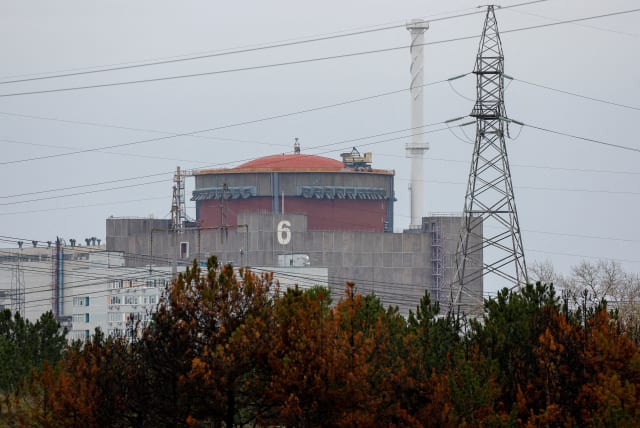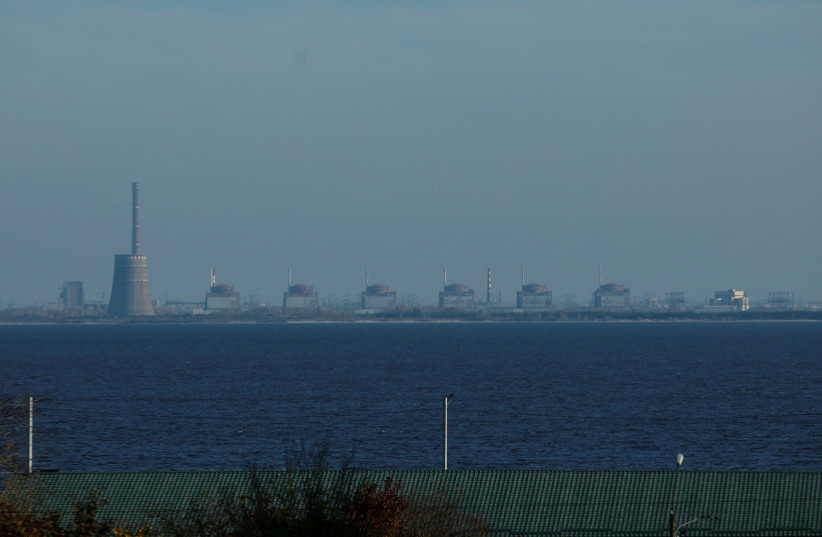Ukrainian nuclear plant reconnected to national grid

Ukrainian officials have accused Russian forces of compromising safety by shelling the site of the plant, forcing power cuts during air strikes and flouting safety measures.
Ukraine's national grid operator said the Zaporizhzhia nuclear power station was reconnected to the grid on Thursday, easing fears of a disaster after electricity to the plant was lost during Russian air strikes.
Back-up diesel generators - a last line of defense to prevent meltdown from overheating reactor fuel - kicked in after external power was lost to the plant early on Thursday, but they have only enough fuel to power it for 10 days.
Ukraine blamed Russia for the loss of power to the plant in southeastern Ukraine. Officials in the part of the Zaporizhzhia region which is occupied by Russia called it a "provocation" by Kyiv.
The incident renewed fears of an accident at Europe's largest atomic power station, nearly four decades after the Chernobyl nuclear disaster, but national grid operator Ukrenergo signaled that repairs had been carried out quickly.
"Specialists of 'Ukrenergo' have restored the power supply of the Zaporizhzhia NPP (nuclear power plant), which was interrupted by today's missile strikes," it said in a statement.
"The ZNPP is switching from diesel generators to receiving electricity for its own needs from the unified energy system of Ukraine."
Ukrainian officials have accused Russian forces of compromising safety by shelling the site of the plant, forcing power cuts during air strikes and flouting safety measures.
Russia has denied shelling the site, and has accused Ukraine of being behind the shelling.
"The risks of disaster at the Zaporizhzhia NPP are significantly increasing, and our ability to react to them, to avoid them are significantly decreasing," Oleh Korikov, acting chairman of the Ukrainian state nuclear safety watchdog, told a news briefing on Thursday.
IAEA response
The International Atomic Energy Agency (IAEA), the United Nations' nuclear watchdog, also expressed alarm after confirming the back-up generators had kicked in.
Calling for a protection zone around the plant, IAEA chief Rafael Grossi told the watchdog's Board of Governors: "Each time we are rolling a dice. And if we allow this to continue time after time then one day our luck will run out."
IAEA monitors are currently on site and Grossi has been pressing both sides to establish a demilitarized "safe zone" around the station.
Jerusalem Post Store
`; document.getElementById("linkPremium").innerHTML = cont; var divWithLink = document.getElementById("premium-link"); if (divWithLink !== null && divWithLink !== 'undefined') { divWithLink.style.border = "solid 1px #cb0f3e"; divWithLink.style.textAlign = "center"; divWithLink.style.marginBottom = "15px"; divWithLink.style.marginTop = "15px"; divWithLink.style.width = "100%"; divWithLink.style.backgroundColor = "#122952"; divWithLink.style.color = "#ffffff"; divWithLink.style.lineHeight = "1.5"; } } (function (v, i) { });

